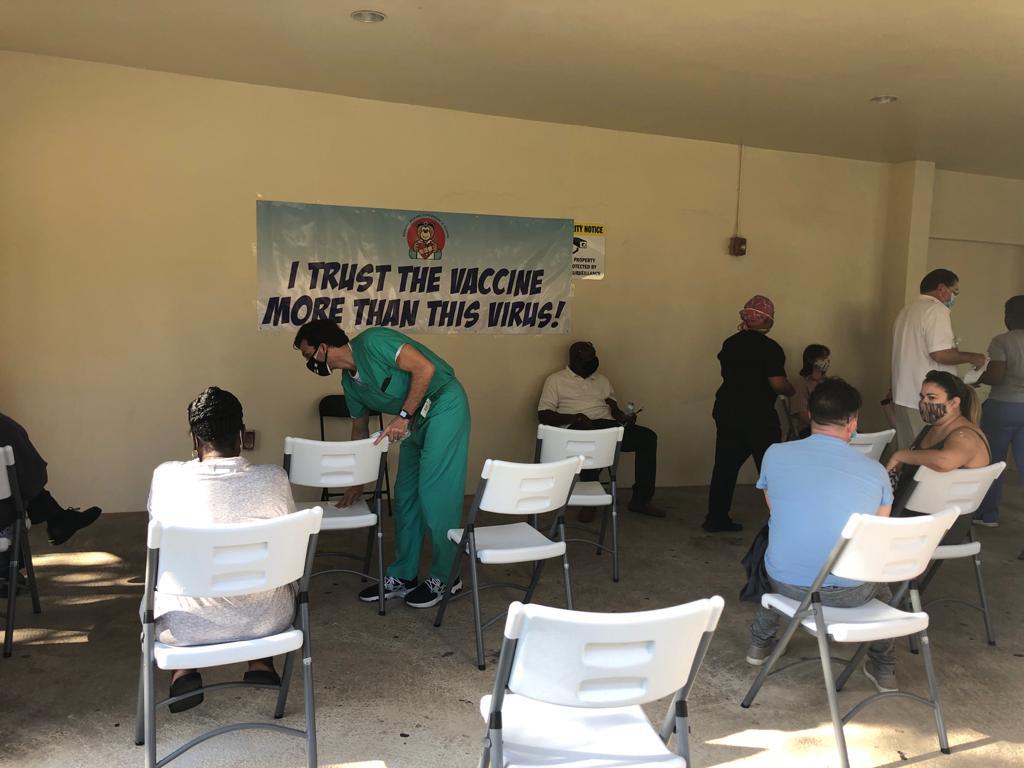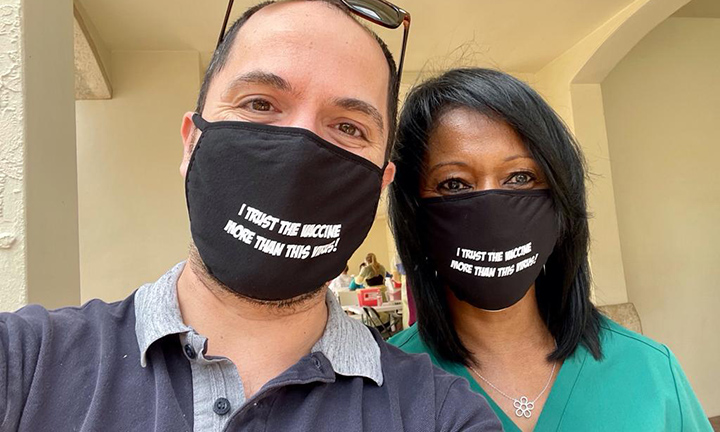Dr. Tina Carroll-Scott ’88 Is Vaccinating Her South Miami Community
‘We need to pivot now, because our communities are being devastated’
When Dr. Tina Carroll-Scott ’88, medical director of South Miami Children’s Clinic, started sending patients to get vaccinated for COVID-19, she noticed a disheartening pattern.
“The patients I sent that were African American were being vetted a lot more closely than other people,” says Carroll-Scott.
Floridians who did not meet age requirements were nonetheless entitled to vaccination if they provided proof that they were in a “high risk” category. But Carroll-Scott received reports from patients of color who had faced heightened and unreasonable screening. Some had their doctor’s notes questioned. Several others were incorrectly told that their allergy to penicillin rendered them ineligible.
“I was hearing these stories over and over again,” she says. “That made me think: ‘How many people are being turned away because they weren’t able to advocate for themselves?’”
In response, Carroll-Scott organized a pop-up vaccination event this spring for low-income Black and brown communities, which across the country have been disproportionately impacted by the virus. To provide day-of health assessments at the event, she recruited Black male physicians.
“I felt that representation absolutely mattered at this event,” says Carroll-Scott. “It was one less hurdle that we would have to overcome with people that are distrustful of the medical system for very valid reasons.”
To ensure a large turnout, Carroll-Scott distributed fliers with her personal cell phone number and email address and fielded all inquiries herself. She also reached out to every Black church in her South Miami community.
“Pastors, especially in communities of color, are trusted messengers,” she explains. “I was trying to tell them, ‘Listen, it is absolutely necessary that you let people know that their lives depend on this.’”
To better understand the reasons for low trust in the vaccine within her community, Carroll-Scott sent an online survey to patients. While the long history of medical experimentation on and exploitation of Black people was a factor, she found that lack of information about the vaccine was the primary source of distrust.
Carroll-Scott hosted an information session and gave out masks and bumper stickers that said in English, Spanish, Creole, and Jamaican Patois: “I trust the vaccine more than I trust the virus.” For the event she hired a DJ to play Stevie Wonder, Michael Jackson, and other upbeat music, which attendees told her was calming.
“People were dancing in line,” says Carroll-Scott. “They seemed to totally forget about any fear or apprehension they had around this vaccine.”
And the turnout exceeded her hopes. At the first event on March 20, her volunteer physicians administered 648 vaccinations, as well as 165 health assessments to people who didn’t have reliable medical care. Roughly 600 of those people showed up for their second vaccination three weeks later.
After each shot, she implored attendees to share her message with their families and friends.
“I told people, ‘I don’t mean to dismiss the history or the concerns that you have, but we need to pivot now, because our communities are being devastated. I need for you guys to now be my ambassadors and spread the message in your communities.’”
After the event, other community centers and leaders asked her advice on how to replicate her success. More recently, Carroll-Scott held a pop-up vaccination event for children.
Carroll-Scott grew up in Rochester, New York, and was the first from her immediate family to attend college. She felt like a “fish out of water” when she arrived at Princeton and even considered dropping from the pre-med track during her first organic chemistry course.
“I’m not gonna say it was easy, and I probably didn’t enjoy a lot of the social aspects of Princeton because my nose was in the books all four years,” says Carroll-Scott. “But I am so grateful to Princeton for giving me that opportunity. I would not be where I am today without it.”














No responses yet